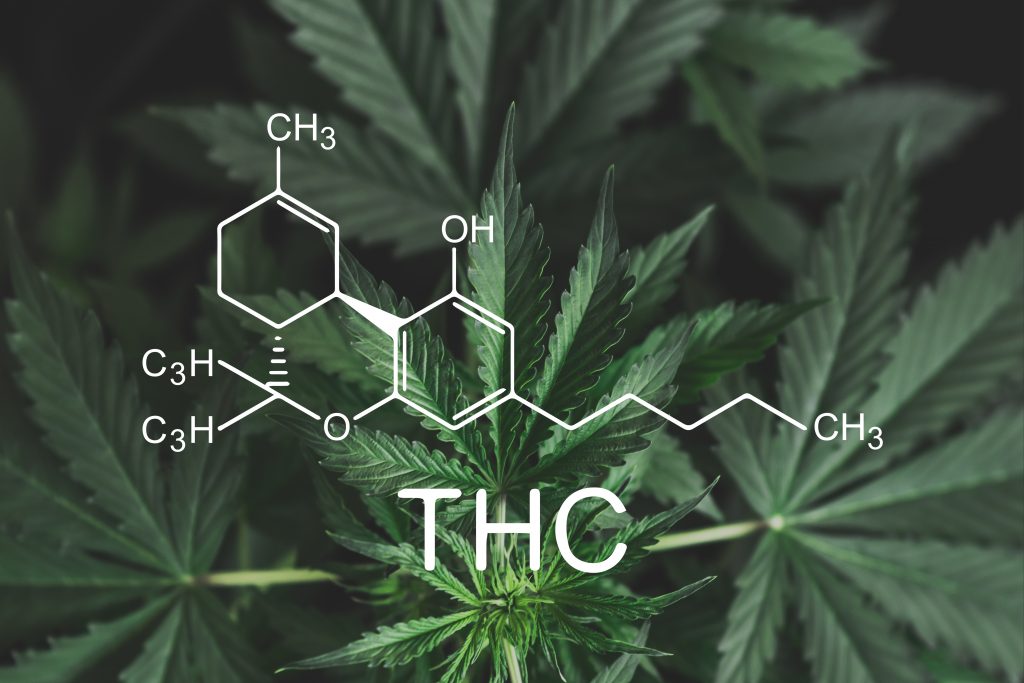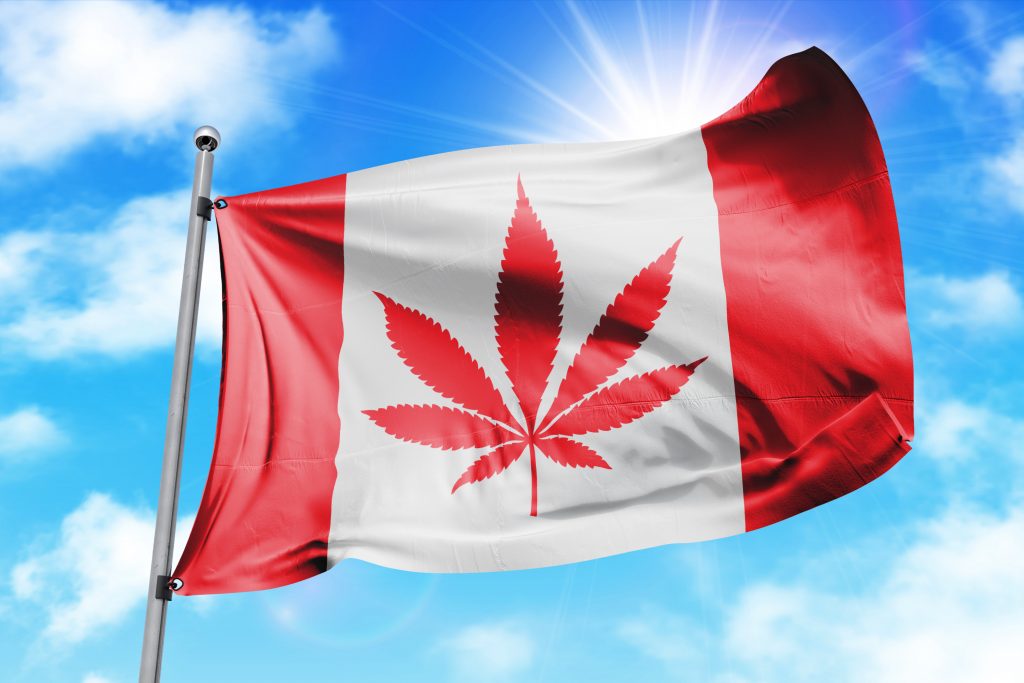The once go-to industry payment processor, Shopify, is now banning the sale of all products containing more than 0.3% THC through their platform. That includes alternative cannabinoids like Delta 8 and 10, THC-O, THCP, and so on.
According to a Shopify email that’s making the rounds, products containing more than 0.3% of any type of tetrahydrocannabinol (0.2% if you’re shipping globally) will be removed from account holders’ online stores. This is in order to comply with FDA regulations.
Word for word, the email sent yesterday to numerous distributors states: “It has come to our attention that you are using your Shopify account to sell Delta-8 tetrahydrocannabinol (THC) products containing more than 0.3% THC. Unfortunately, due to applicable laws and regulations in the United States, Shopify’s policies do not currently permit merchants to offer for sale products containing more than 0.3% THC regardless of compound type (e.g., delta-8, delta-9, delta-10).”
Cannabis regulations are incredibly complicated and constantly changing, but we’ll continue doing our best to keep you updated every step of the way. Remember to subscribe to The THC Weekly Newsletter all the latest news and industry stories, as well as exclusive deals on flowers, vapes, edibles, and other products. Also save big on Delta 8, Delta 9 THC, Delta-10 THC, THCO, THCV, THCP & even HHC / HHC-O products by checking out our “Best-of” lists!
A bit more about THCs
To quickly summarize, there are about 15 different known tetrahydrocannabinol compounds, some are natural from the plant and some are synthetics. The main ones you’ll see in today’s market are delta 8, 9, and 10, THCV, THC-P, and THC-O. When people think of “THC”, Delta 9 is what they’re thinking of. Delta 9 THC is the main psychoactive compound in the cannabis plant. For decades, Delta 9 has been at the heart of prohibition efforts because lawmakers were too intently focused on its mind-altering properties while completely dismissing all of its many possible uses in the health and wellness sectors.
As delta 9 ages, a significant portion oxidizes and “degrades”. Most of it turns into CBN (cannabinol), while a small amount turns into Delta 8 THC and possibly, other trace cannabinoids and compounds. As a result of this chemical process, Delta 8 THC remains stable when exposed to air, meaning it could have more potential medical applications than delta 9, although Delta 8 is somewhat less potent. In cannabis plants, delta 8 is only present in trace amounts, so in most of the products you find online or in stores, the delta-8 THC is actually a synthetic converted from CBD, not a plant-extracted compound.
Then we have delta-10 THC. D10 is a completely synthetic cannabinoid that was discovered on accident. As with many of the nation’s Cannadelics trends, delta-10 THC started in California. An Adelanto-based company, Fusion Farms, bought some outdoor flower to manufacture concentrates. As many already know, California is subject to very large, nearly annual wildfires; and unbeknownst to Fusion Farms, the biomass they purchased was contaminated with fire retardant. Since they were unaware of the contamination, they continued with the extraction as planned but after the distillation process, unusual crystals began to form. These crystals were similar to THC, slightly different from any previously identified cannabinoid. And thus, it was dubbed delta-10 THC.

THCV, or tetrahydrocannabivarin, THCV is a naturally occurring analog of THC. THCV comes from the precursor cannabinoid CBGVA, which breaks down to into THCVA (tetrahydrocannabivarin acid), which then is decarboxylated to form THCV. What’s interesting about THCV is the way that it interacts with our endocannabinoid system, and the subsequent effects it has on appetite and weight.
THCP (tetrahydrocannabiphorol), on the other hand, is a special type of THC analog called a homolog. A homolog is a molecule belonging to a series of compounds that differ from each other by a repeating unit. In this scenario, the repeating unit is the alkyl side chain. Delta 9 THC has a 5-term alkyl side chain, which means that it contains 5 total carbon atoms. THCP has an elongated 7-term chain.
And finally, let’s take a look at THC-O-Acetate, which is referred to as an acetate ester of delta-9 THC. Let’s cover what exactly that means. We know that delta-9 THC is created as a result of the decarboxylation of THCA, but there are different ways that decarboxylation can occur. An acetate ester is a byproduct of a certain type of decarboxylation called LTA decarboxylation, a process that is very different from the standard method of heat/light induced decarboxylation.
What does the DEA and FDA say about THC?
First and foremost, all THCs are still technically considered Schedule 1 one narcotics, as per the Drug Enforcement Agency (DEA). So naturally, this factors into Shopify’s decision. For reference, Schedule 1 narcotics are said to have the highest potential for abuse and addiction, and thus, are under the strictest regulations. That said, natural drugs that we in the industry know to be safe, like cannabis, mushrooms, and peyote, are listed under schedule 1, whereas substances like methamphetamine and heroin are a bit less stigmatized with a schedule 2 category. It really makes no sense, but that’s the way it is.
Additionally, on Shopify’s page of resources for companies selling “hemp and hemp-derived products”, there is a link to the Federal Drug Enforcement Agency’s (FDA) statement governing the sale of these items. As per their website, “Even if a CBD product meets the definition of ‘hemp’ under the 2018 Farm Bill, it still must comply with all other applicable laws, including the FD&C Act. Furthermore, the FDA has concluded that THC and CBD products are excluded from the dietary supplement definition under section 201(ff)(3)(B) of the FD&C Act [21 U.S.C. § 321(ff)(3)(B)].”
So basically, they’re heavily regulated, products containing these compounds cannot even be legally sold as dietary supplements anymore, and Shopify simply does not want to deal with the drama, as is the never-ending cycle of cannabis industry payment processing woes in the US.
More on global regulations – Europe and Canada
In other parts of the world, namely Europe until a very recent ruling, hemp was defined as having less than 0.2% THC, rather than 0.3% like in the US. The change is insignificant in terms of product quality and safety, but it’s a major pain for farmers and manufacturers.
Under Shopify’s section on “Laws and regulations for selling hemp or hemp-derived products internationally”, it states that, “You can sell hemp or hemp-derived products if it’s legal, and you comply with all marketing laws in your jurisdiction and the jurisdiction of your customers. The products you sell can’t contain more than 0.2% of THC, regardless of the compound type, such as delta-8, delta-9, and delta-10.”
Now Canada. Because cannabis is legal at the federal level in Canada, the regulations for payments and banking are a bit different there. Here is what Shopify has to say about companies selling cannabis products in Canada:

“In Canada, most hemp-derived products are classified as cannabis. To sell hemp or hemp-derived products in Canada, you must: Be licensed to sell cannabis either at the federal or provincial level, comply with all the requirements set out in the relevant legislation, use Shopify Plus, complete a specific onboarding process related to selling cannabis products in Canada.”
Shopify Banning THC – Final thoughts
Although highly inconvenient, because companies are scrambling to set up new online shops and find payment processing solutions, if there is one thing to be said about the cannabis industry is that we are adaptive. As of now, it appears that WordPress/WooCommerce will be the next big thing for industry internet retail, so keep an eye out as things continue to unfold.
Welcome all! You’ve made it to CBDtesters.co, your one-stop-shop for the best independent news coverage of the cannabis and psychedelics, currently going on. Drop by the site regularly to stay abreast of the exciting world of legal drugs and industrial hemp, and subscribe to The THC Weekly Newsletter, so you never miss a breaking story.
Disclaimer: Hi, I’m a researcher and writer. I’m not a doctor, lawyer, or businessperson. All information in my articles is sourced and referenced, and all opinions stated are mine. I am not giving anyone advice, and though I am more than happy to discuss topics, should someone have a further question or concern, they should seek guidance from a relevant professional.
Cannadelics: Beyond Psychoactive
Cannabis, Psychedelics & Consciousness Drugs







